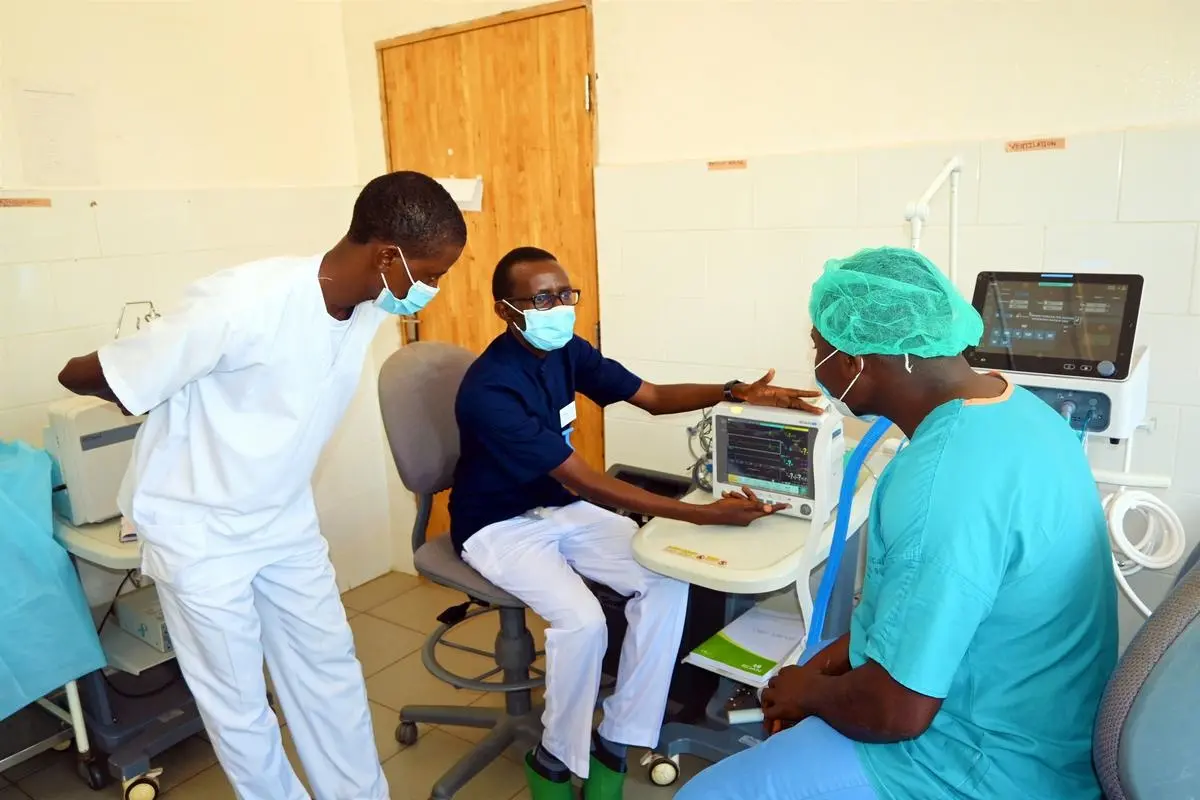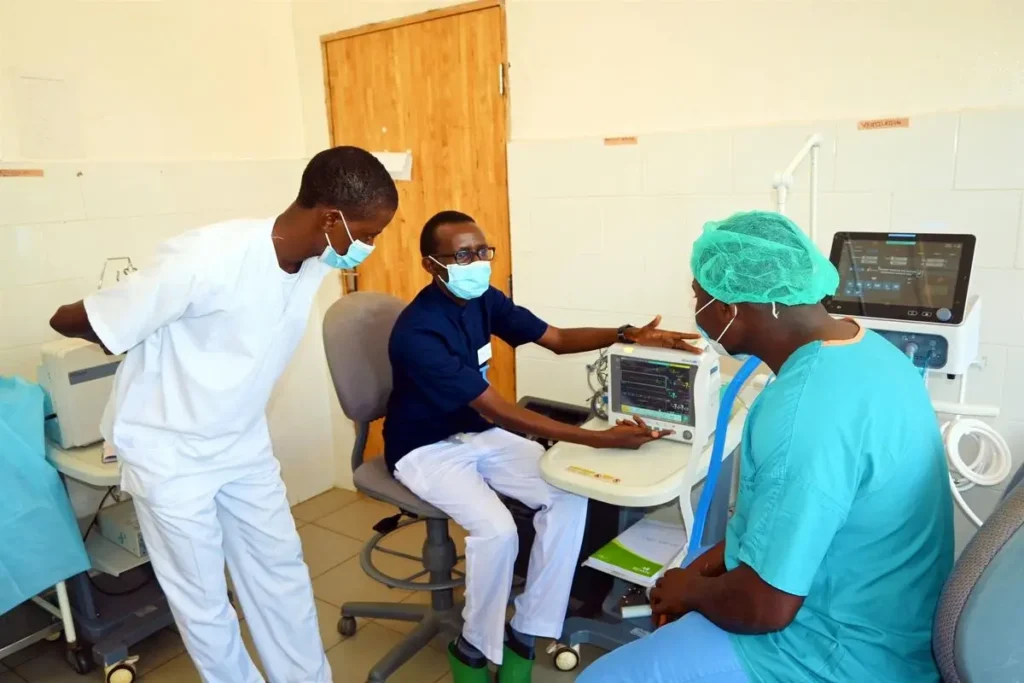Research: Investment in Nurses and Midwives Improves Health Care Outcomes in Rural Liberia

Published paper highlights importance of advanced training for nurses and midwives
Posted on June 14, 2022

Nurses and midwives are vital to health care systems. This is especially true in regions with health workforce shortages, such as southeast Liberia. On a daily basis, nurses and midwives help meet patients’ everyday needs and fill in during emergency situations. Simultaneously, they train nursing students.
To improve patient care and nurse training, strategic interventions must be carried out. In a new paper—published in Annals of Global Health in October 2021—Partners In Health (PIH) leaders and Tubman University partners call for sustained investment in education and training.
“Nurses and midwives are the first and sometimes the only health care workers patients meet in Liberia,” says Daniel Maweu, nurse-midwife for PIH Liberia and lead author of the paper. “Due to a shortage in the number of doctors in Liberia, nurses and midwives are expected to perform lifesaving tasks which ordinarily would be the preserve of doctors.”
Since 2015, PIH has worked with Tubman University faculty to prepare nurses and midwives in Liberia for the workforce through effective teaching methods, capacity building, and the promotion of nursing.
There is a deep gap in Liberia’s health delivery system and rural regions of the country bear the brunt of the problems, according to Maweu and Lydia Johnson, health science instructors at Tubman University and co-authors of the paper. Maweu noted that the gap impacts educational interventions, which are key to equipping nursing students to deliver high-quality care.
In the paper and through various research projects, Maweu and Johnson investigated hard-hit areas of the health system in rural Liberia to identify optimal interventions, such as training nurses.
There’s not a single teaching method that is effective on its own, they say, but rather a combination of theoretical sessions, practical sessions, and group work. More specifically, reviewing case studies, practicing procedures through simulation training, and clinical training with real patients equips nurses with essential skills.
“When the capacity of nurses is built in rural Liberia, the positive impact of global health will be felt throughout the country,” says Johnson.
Nurse training is constantly evolving due to diseases like Ebola and COVID-19 and advances in technology and research. That makes continuous professional development and curriculum review all the more important. Another strategy for nurse education adopted by the Liberian Board of Nurses and Midwives is the Online Continuous Professional Development Program, which provides hundreds of free short courses for nurses and midwives.
“Investing in nurses and midwives has an undisputed potential to contribute to the sustainability of the health workforce, develop the resilience of the health system and provide quality universal health access for all,” says Maweu, who hopes to expand the Nursing Center of Excellence in rural Liberia.
Originally published on pih.org



